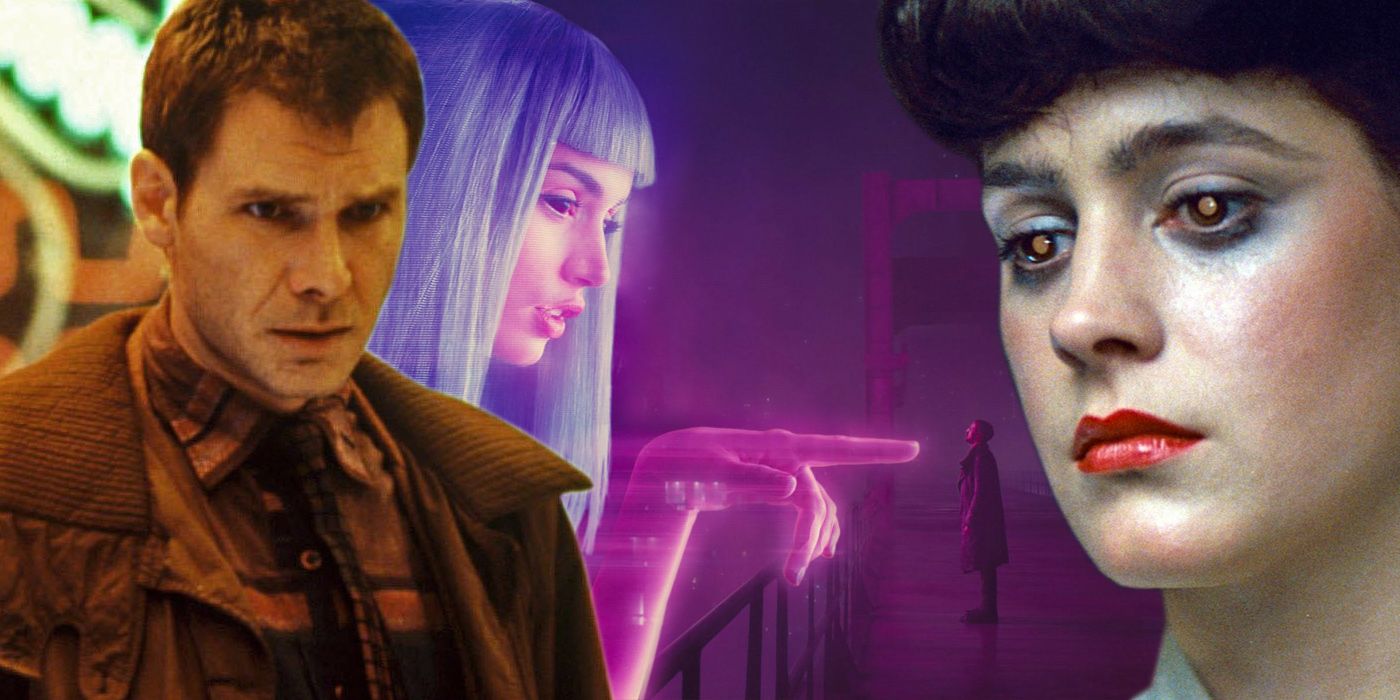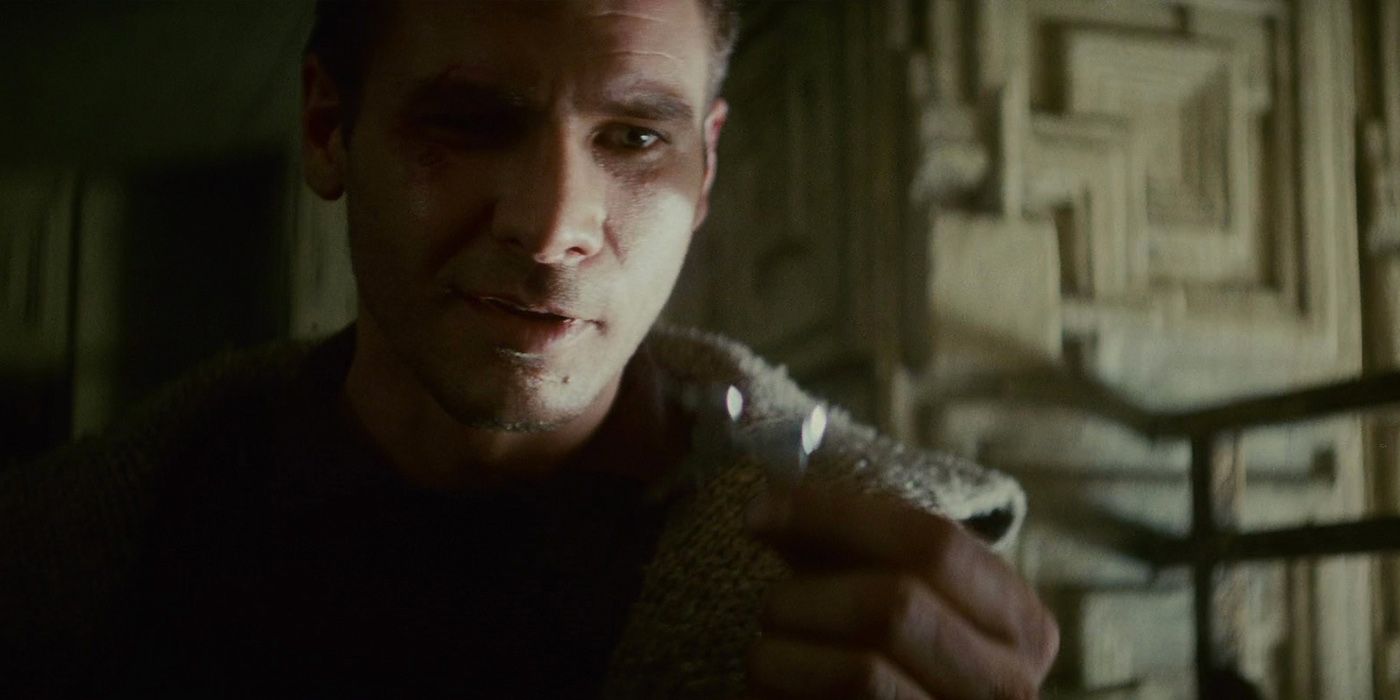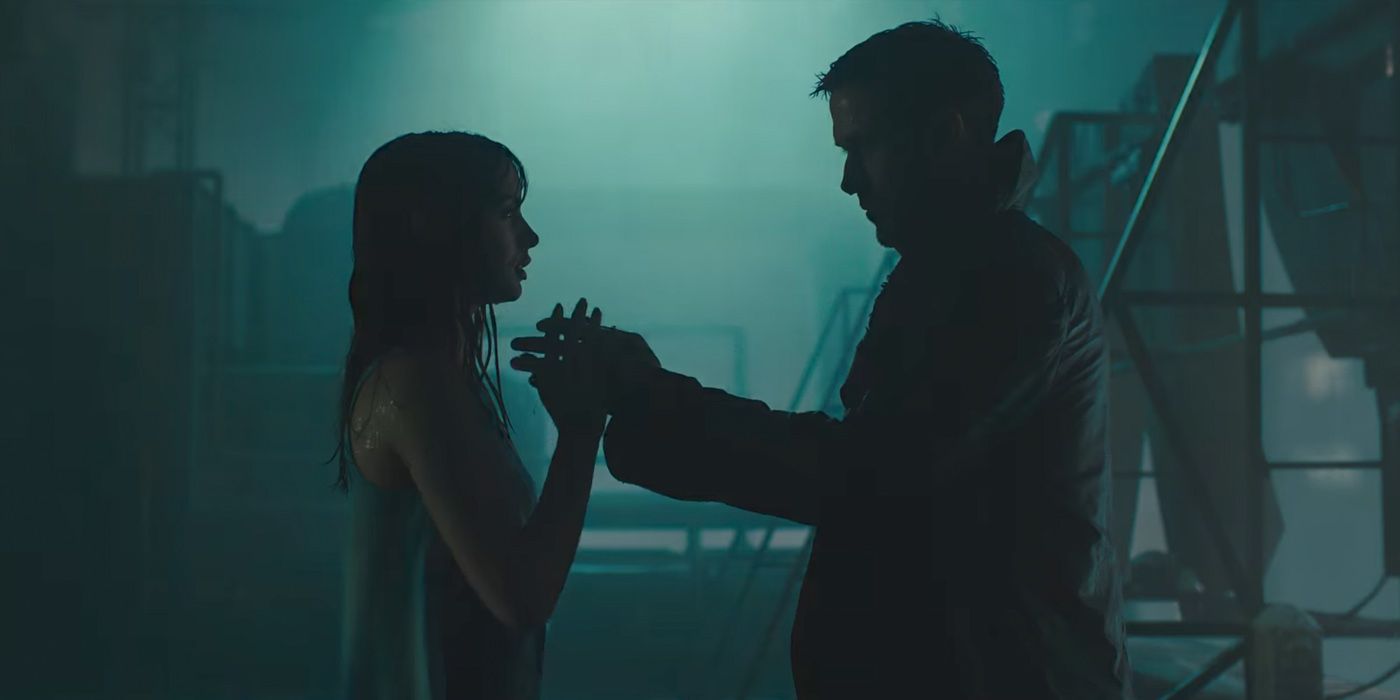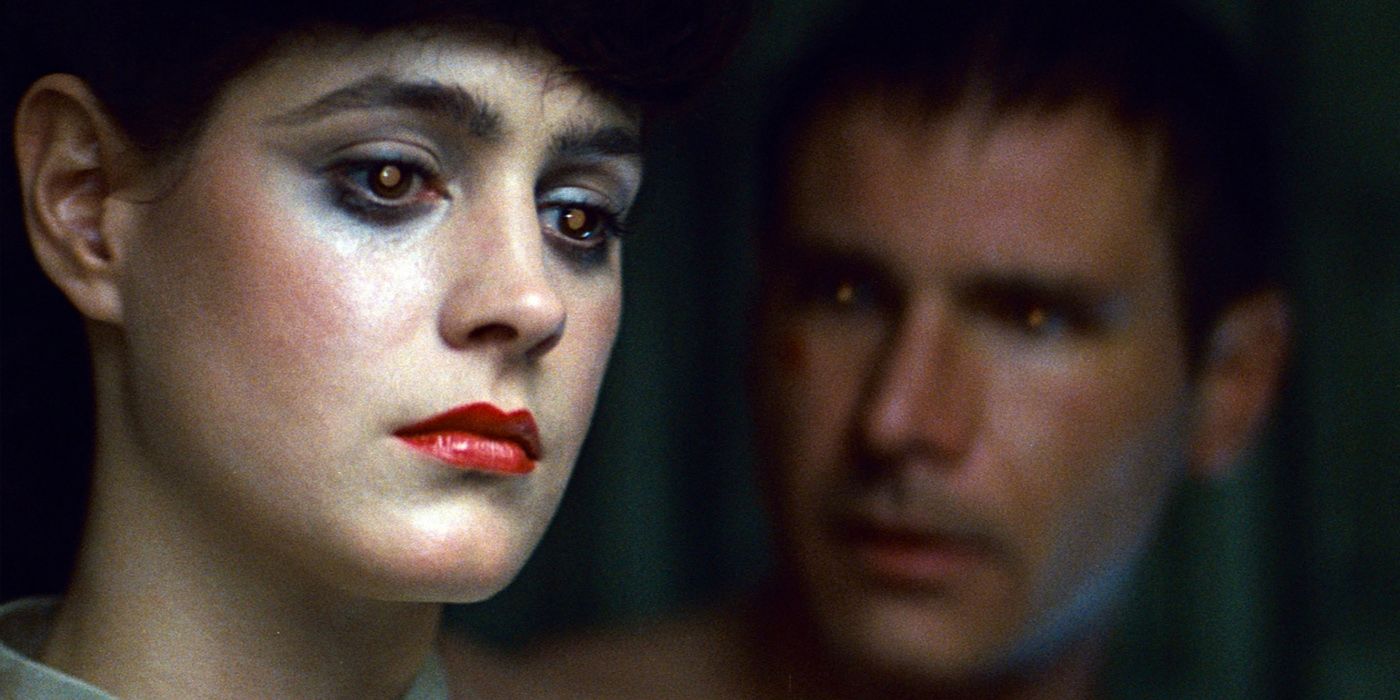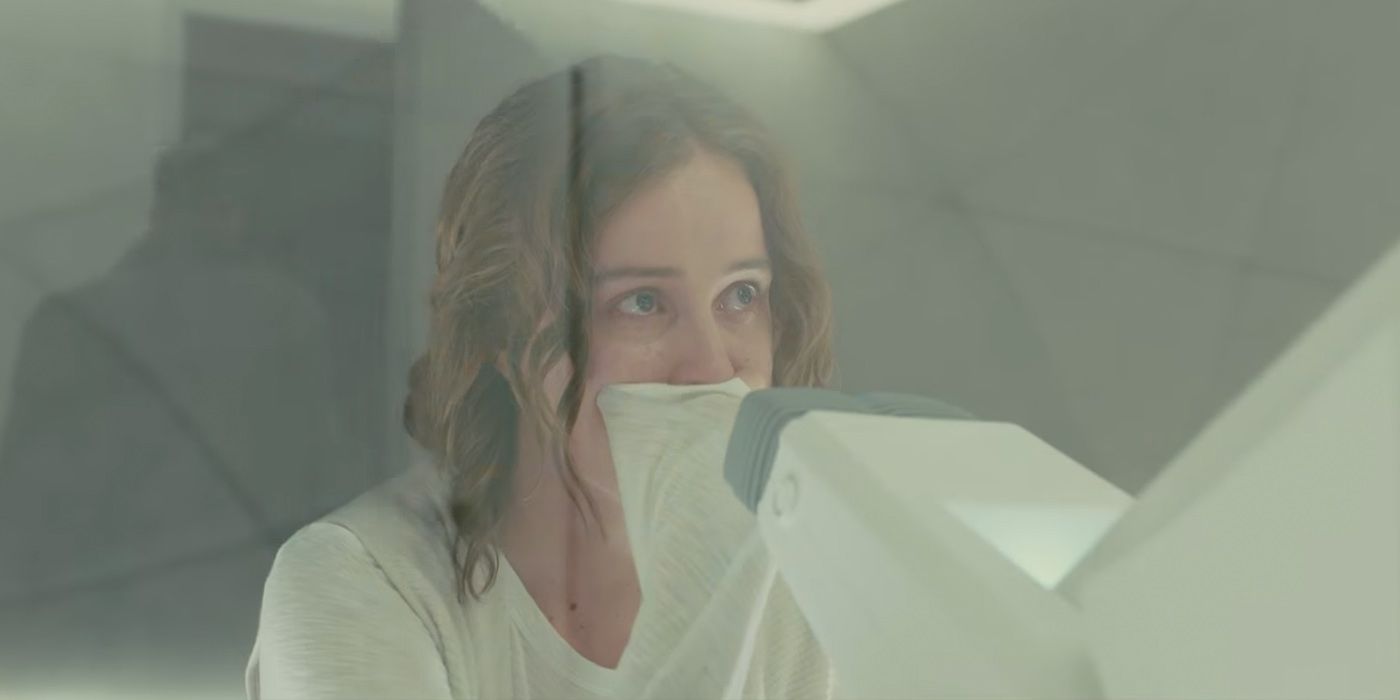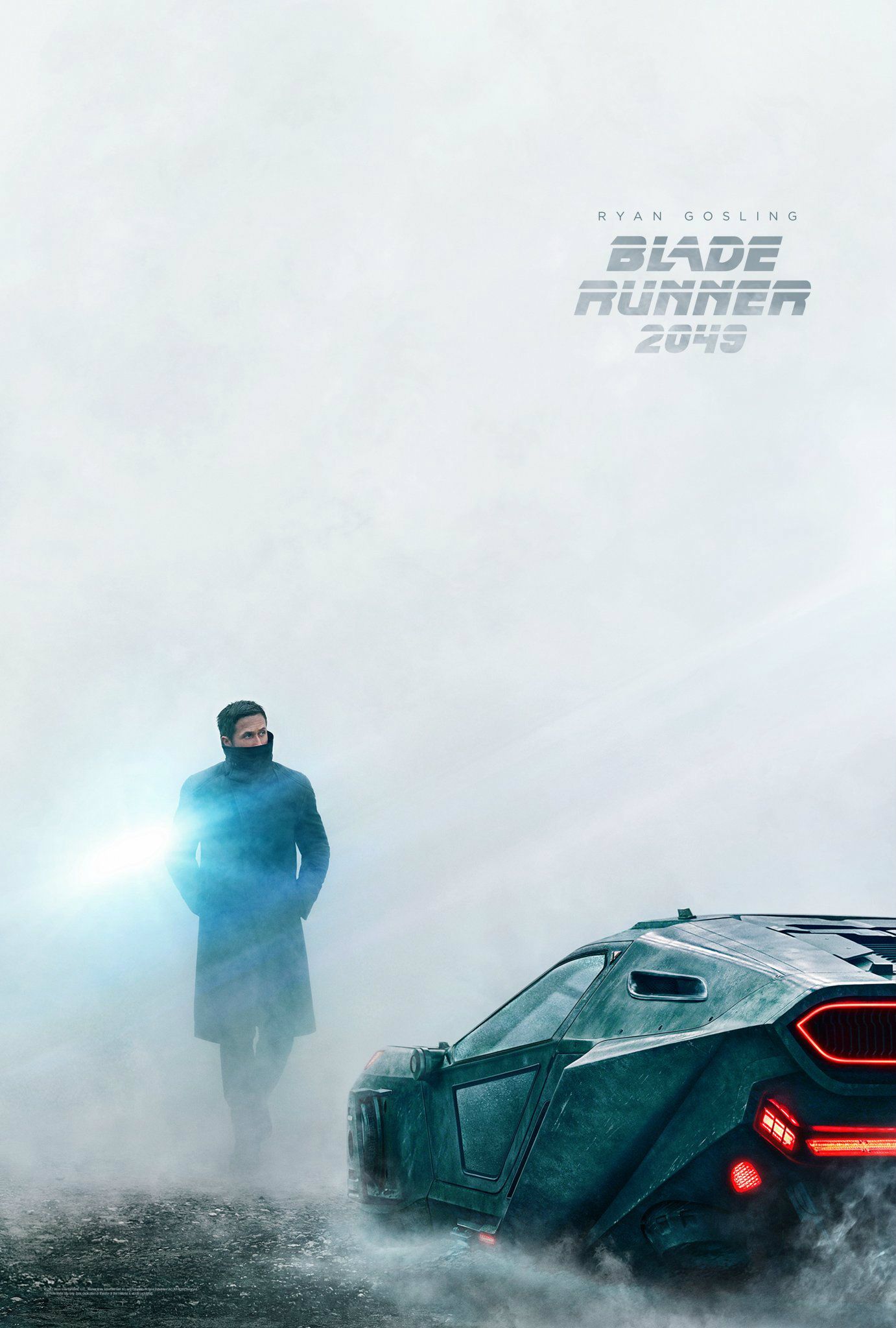Major spoilers for Blade Runner 2049.
-
Blade Runner 2049 doesn't just continue the story of Ridley Scott's 1982 classic; it changes the very meaning of the original Blade Runner.
2049 deserves to sit alongside the likes of The Godfather Part II and The Empire Strikes Back as worthy and great sequels to already revered movies; against all the odds, this belated entry expands the world and themes to provide something at once faithful and new. And, like how Godfather reveals Vito Corleone's origins or Empire a shocking truth about Luke Skywalker's past, Denis Villeneuve's follow-up shifts how you're going to watch the original.
The difference is that whereas in those classic examples the changes are narrative, for Blade Runner it's a bit more complex. Yes, we do find out what happened to Deckard and Rachael after the elevator doors closed (or, if you prefer the Theatrical Cut, once they'd driven off in the fields of green) but the fundamental mystery - is Deckard a replicant? - remains. However, 2049 changes something bigger. It changes, or rather realigns, the way you read Blade Runner. It changes its meaning.
What Was The First Movie About?
Before looking at what 2049 changes, we must first establish was the original was about. And that's no easy task. Part of what's made Blade Runner such a landmark is how its intoxicating style leads to a myriad of esoteric readings. But we'll give it our best shot.
At its core, Blade Runner is about identity and place in the world. Deckard embodies this by his emerging struggle with both his feelings for Rachael and the ethics of killing replicants; over the movie he tries to see her as a machine and to kill Roy Batty's gang emotionlessly, but struggles on all counts to live by his "Replicants are like any other machine. They're either a benefit or a hazard. If they're a benefit, it's not my problem" mantra. This slowly gets reflected on himself, leading to the unanswerable question of if he really is a replicant.
Related: The Original Blade Runner is Not Overrated
This theme is mirrored in Batty, who over the course of the movie is forced to come to terms with his mortality in the face of immaculate conception. They're contrasted further by J.F. Sebastian, a methuselah syndrome sufferer (a condition that gives him accelerated aging) who can't go off-world, yet seems happy in himself despite not measuring up to societal standards.
But there's obviously more than that. The film is a sly commentary on the ills of technology reliance - in both the replicants themselves and the muted dystopia they inhabit - and more subtly how damaging changes become accepted. Alongside this is the specter of big business; future L.A. is plastered with adverts for major corporations and the entire artificial human enterprise is run by a single company. No matter how altruistic its namesake, Tyrell is our corporate future personified. Again, all this is contrasted by the matter-of-fact ignorance of its characters.
In concise, grandiose terms, Blade Runner is about what makes us human.
What Is The Second Movie About?
Blade Runner 2049 takes up a lot of those elements of the original and advances them. K's arc is most certainly about place of being, while the technology and business aspects loom larger (literally in the latter case) care of the Black Out and Wallace's grand dreams of species-wide rule and replicant enslavement. It's a more run-down dystopian vision, one that's barely surviving thanks to the path it started down a long time ago.
Related: Blade Runner 2049: Do You Actually Need To See The Original?
But, when you go deeper, the second movie shifts focus and channels these elements into something else. What 2049 really is about, fundamentally is love.
K's journey hinges on his relationship with Joi. A good portion of the first half is spent on their two-way relationship - him gifting her freedom of body, her gifting him a chance to be with her physically - and seeing what is ostensibly a relationship between two man-made constructs become a delicate ballet of emotions. She's made to service him - just as he is made to service the LAPD - but she appears to operate autonomously and against self-preservation, willingly putting her consciousness in a small drive and in her final moments professing love. Joi is a microcosm of the film's exploration of what existence means, and it's in that final proclamation where K finds the belief and purpose to take his heroic stand.
Blade Runner always had empathy as a core facet of the human question, but it being the powering reason for K saving Deckard to reunite with his daughter - another move of love - pushes it to the foreground. And, as K's realization is framed as a resolution to the original movie, giving Deckard closure, it retroactively shifts how we view that film.
Blade Runner Is Actually A Love Story
Blade Runner's debate on existence typically tends to center on the dichotomic figures of Deckard and Batty. But not its sequel. Blade Runner 2049 doesn't feature a single mention of Batty (if anything, K is his parallel) and the classic replicant identity mystery is completely downplayed to the point belief in oneself overtakes facts; it's alluded to heavily that Deckard is an artificial human but the movie falls shy of providing confirmation.
Instead, the sequel draws more attention to the shifting relationship between Deckard and Rachael. Their child is the driving force of the narrative - something that could break down the walls of the human-replicant divide - and the surviving Deckard's entire existence is dominated by compassion for his partner and their daughter; he's in hiding to protect her and remains besotted.
Indeed, the only time the movie fully embraces the question of if Deckard is a replicant circles on Rachael. The most probable alt solution to him being a simple human presented is that he was planted on the Batty case to explicitly meet her and lead to her child; his entire existence hinges on those first feelings of attraction. It's certainly what Wallace deems important when he tries to ensnare Deckard, and the shooting of the brown-eyed copy isn't a refuting of that moment's importance regardless of motivation.
Blade Runner 2049 is from the very start rewinding the conventional reading of Blade Runner to make it into a purer love story, using K's unconventional relationship with Joi as thematic groundwork and then paying it off with the second half of Deckard's arc. The ending hammers this home, having the duology end on a moment of requited longing and closure for Deckard as he meets his daughter; were you to tell the two movies as a single story, it's that of Deckard and Rachael.
This shouldn't be all that surprising. Director Denis Villeneuve has been incredibly coy when discussing what his film is really about, to the point his most revealing statement about 2049 came when he wasn't really talking about the sequel. When Screen Rant asked him about which version of the original film was canon, he said that technically it was the Final Cut, but made a serious point about how the Theatrical version was the one that he'd grew up on and made an emotional connection to. Talking about the specific differences between the two versions, he dropped a bombshell:
"The first movie [Theatrical Cut] is the story of a human falling in love with a designed human being, artificial being. The story of the second movie [Final Cut] is a replicant that doesn't know he's a replicant, and that slowly discovers his own identity. So those are two different stories."
Related: Which Is The Best Version of Blade Runner?
The version of Blade Runner that the director of 2049 prefers is the one that he outlines as a love story over one of identity mystery. Narratively he's following the latter, but emotionally he's continuing the themes of the movie that he grew up on. He likely always focused more on the Rachael aspect as fan and has now made that the defining part as director.
-
One of the go-to criticisms of Blade Runner in the decades since its original release and its ascension to seminal classic has been that, for all the meticulous visuals and staggering world-building it's allegedly an ultimately hollow, emotionless film. This was always a bit off base, but now with Blade Runner 2049 Villeneuve has provided a timeless rebuke: it was about love all along.

